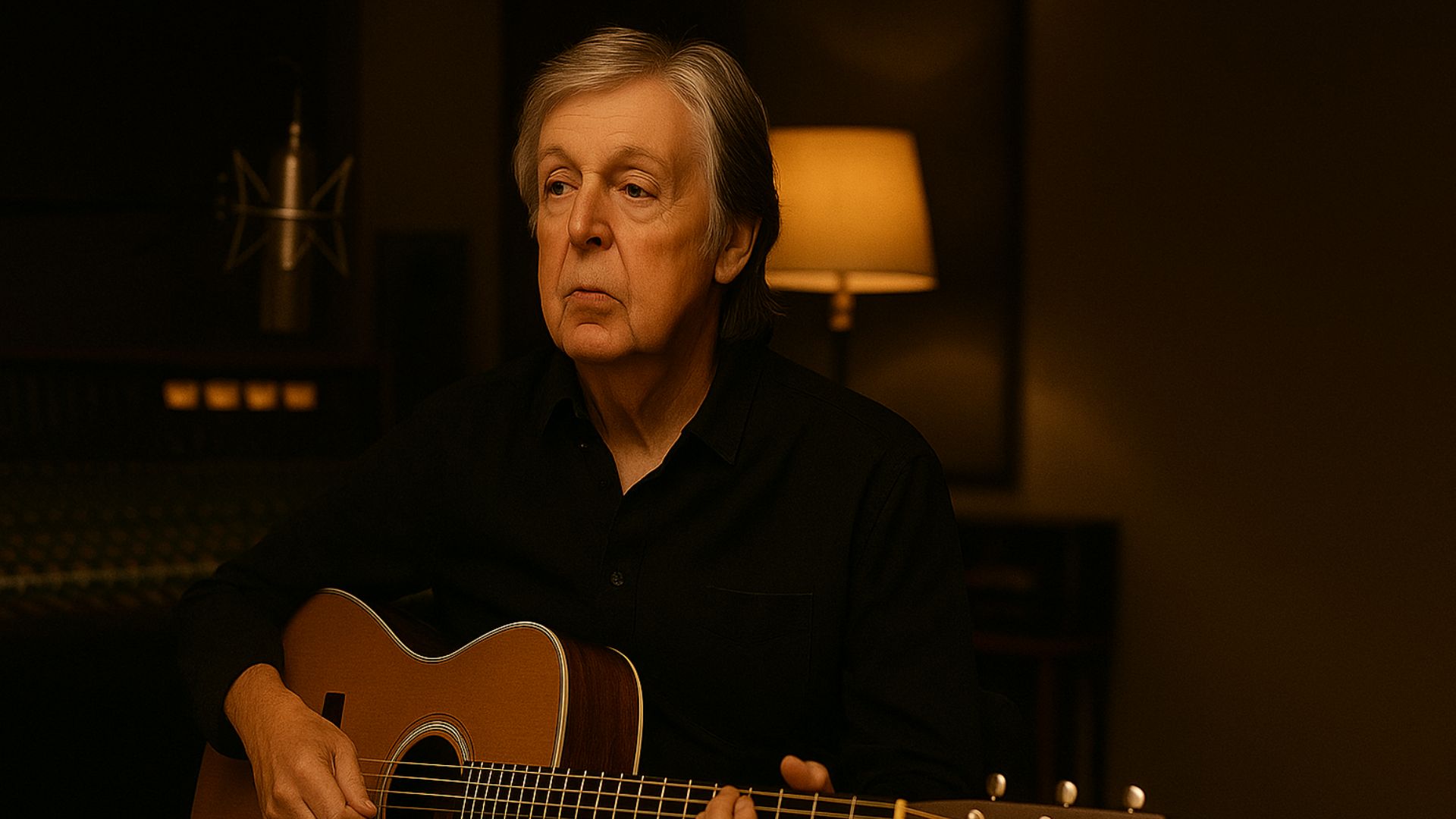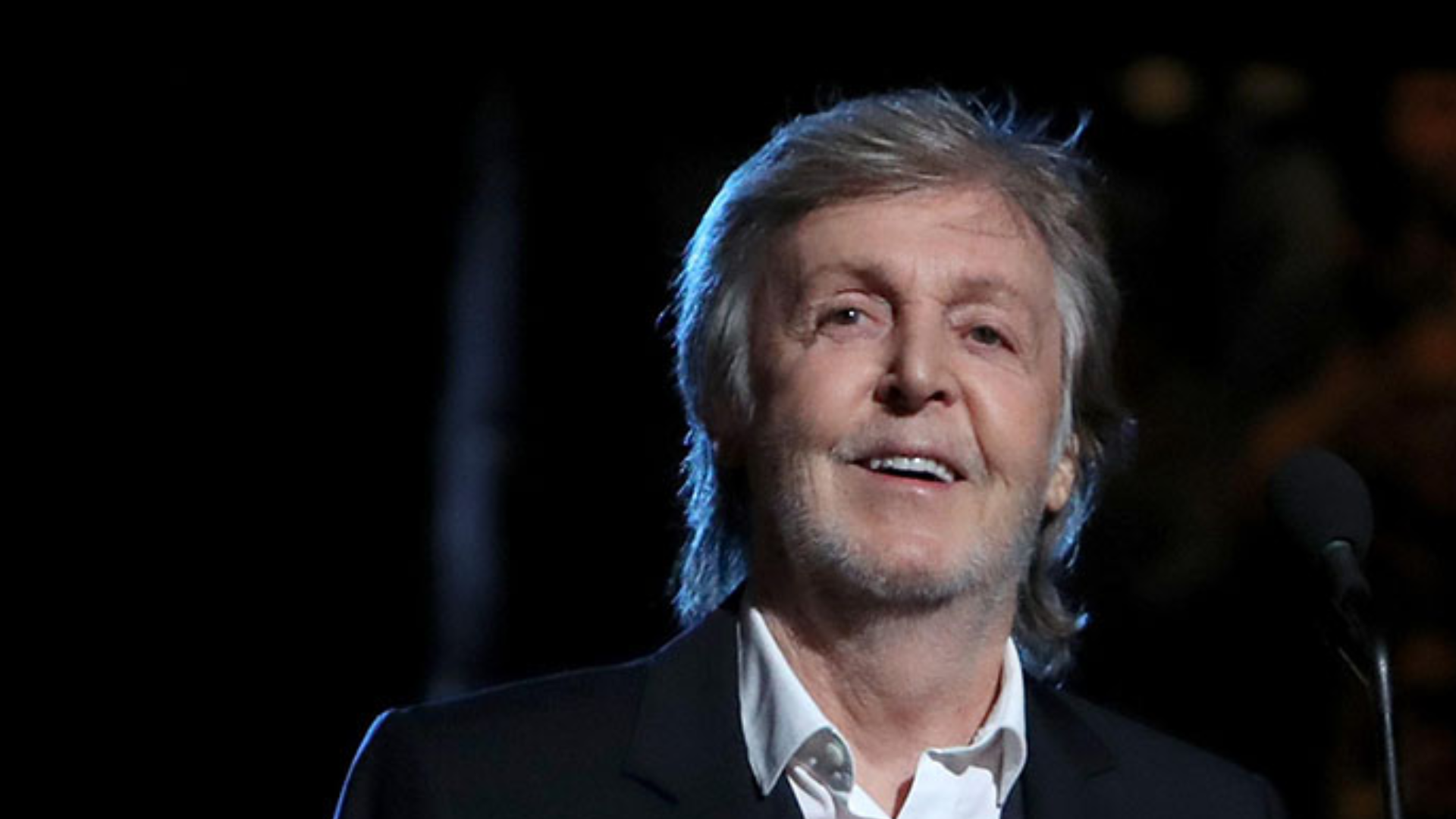
When Paul McCartney wrote “Blackbird” in 1968, it was just him, an acoustic guitar, and a moment of stillness amid chaos. The Beatles were recording the sprawling White Album, a project marked by tension, exhaustion, and creative fracture. But late one night, in a small room at Abbey Road Studios, McCartney sat alone and played a song so simple, so pure, that it felt like a whisper of peace rising above the noise.

The opening fingerpicked chords — inspired by Bach’s Bourrée in E minor — flutter like wings in motion. Then comes Paul’s voice, calm and clear:
“Blackbird singing in the dead of night, take these broken wings and learn to fly…”
It sounds like a lullaby, but its message runs deeper. The “blackbird,” McCartney later explained, was a metaphor for the struggle of Black women in America during the Civil Rights Movement — a quiet tribute to their courage and endurance. Beneath its gentle melody lies an anthem of liberation, written not in anger, but in compassion.
In less than three minutes, McCartney captured something eternal: the resilience of the human spirit. “Take these sunken eyes and learn to see…” he sings — not as instruction, but as faith. The song doesn’t pity; it empowers. Its beauty lies in its gentleness, its refusal to shout. In a world fractured by violence and division, “Blackbird” offered stillness — the belief that freedom begins not with protest, but with awakening.
Musically, the song is a marvel of restraint. It’s just McCartney’s guitar and the subtle rhythm of his foot tapping on the studio floor, giving the illusion of flight. His melody rises and falls like breath, and every note feels intimate — as if sung only for you. When the blackbird’s chirps enter near the end, it’s not an effect; it’s a benediction. Nature itself joins the song, affirming what McCartney was trying to say: that even in the dead of night, there is life, there is beauty, there is hope.
In the decades since, “Blackbird” has taken on countless meanings. It has been sung at marches, memorials, and quiet gatherings — embraced by generations who hear their own struggles reflected in its grace. From its earliest performances to McCartney’s later tours, the song has remained untouched, unchanged — because it doesn’t need to evolve. It already speaks the language of the soul.
When Paul performs “Blackbird” today, often standing alone under a single spotlight, his voice carries the weight of time. You can hear both the young dreamer who wrote it and the older man who has lived its truth. He sings it softly, without embellishment — a prayer for those who still wait to fly.
💬 “You were only waiting for this moment to arise…”
Those words linger long after the final chord fades. They remind us that even in silence, there is power. Even in darkness, there is light.
Because “Blackbird” is not just a song — it’s a promise.
That no matter how broken the world seems, something — someone — is always learning to fly.